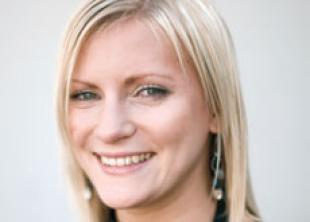

You have to be in it to win it

The disappointment of the performance of Middle Eastern countries in the Beijing Olympic Games has raised the issue of how governments across the region can work with the sports industry to better organise the sector and produce elite athletes.
The notable absence of certain countries in the Beijing medal table was worse than expected. After the success at the Athens Olympic Games in 2004 when trap shooter Sheikh Ahmed Al Maktoum captured the UAE's first ever gold, there were high hopes. But, this year, the UAE didn't even make it onto the medal table.
The highest placed Middle Eastern countries were Turkey at 37 and Iran at 51, while Bahrain put the GCC on the medal board in fifty-second position, with Rashid Ramzi achieving the country's first gold medal with a spectacular win in the 1500 metres.
While this deservedly caused for great celebration, it was the only major highlight for the region, and it was a feat achieved despite the lack of organisation in the sports industry - not because of it.
For a region focused on putting itself on the map and well on its way to achieving this in so many areas, it's vital that the success of such a high profile sector as the sports industry is not left to chance.
Beijing has highlighted this for sports officials in the UAE, with the secretary general for the UAE Olympic Committee Ibrahim Abdul Malik calling for a change in the cultural attitudes of young people toward sport.
Speaking to UAE daily The National he said: "The Emirati youth has little interest in sport compared to young people in other countries, with the exception of football. The life of the people has changed. Emiratis have a soft and easy lifestyle. But sport is not easy, it is hard".
This was backed up by head of performance communications at Sport UK, Matthew Crawcour, one of the figures involved in the 20-year turnaround of the British team at the Olympics, which this year brought home its biggest medal tally to date.
Crawcour told The National that the UAE had to start by making sport available to every child. I couldn't agree more - a culture of sport needs to be instilled at an early age.
The arrival in Dubai of SOCATOTS - the soccer-specific physical play programme for children aged six months to five years at the purpose-built Football Academy at Dubai Sports City - is hopefully one scheme that will help kick start this trend.
One advantage the UAE has in driving the country towards sporting excellence is that there's no shortage of potential funding. This needs to be invested not only in sparkling new facilities like those at Dubai Sports City, but in training, coaching and funding full-time athletes and reorganising the sports sector.
The Dubai Government has already initiated this shift with the launch of the Hamdan Bin Mohammed Programme for Sports Leadership Development (HBMPSLD).
The objective of the programme is to develop "change agents" to project a sports society, increase the number of UAE national women in sport and re-organise the business of sport.
It is these change agents that will hopefully be able to follow up on Crawcour's second piece of advice, which is for the UAE to find sports that are not that popular and where there is more of a chance to win medals. In addition, there is little point in the UAE focusing on events like sprinting or basketball, which are not part of its tradition.
Malik suggested the country should focus on shooting, cycling and sailing. The benefit to the UAE is that it has the funds to provide the expensive equipment and facilities that training for these sports requires - something competitors from other countries may not have.
Louise Oakley is the editor of Leisure Manager.
RELATED LINK: Dubai Sports City could host Olympics, Increased emphasis on sport for children, Government hunt for ‘change agents'